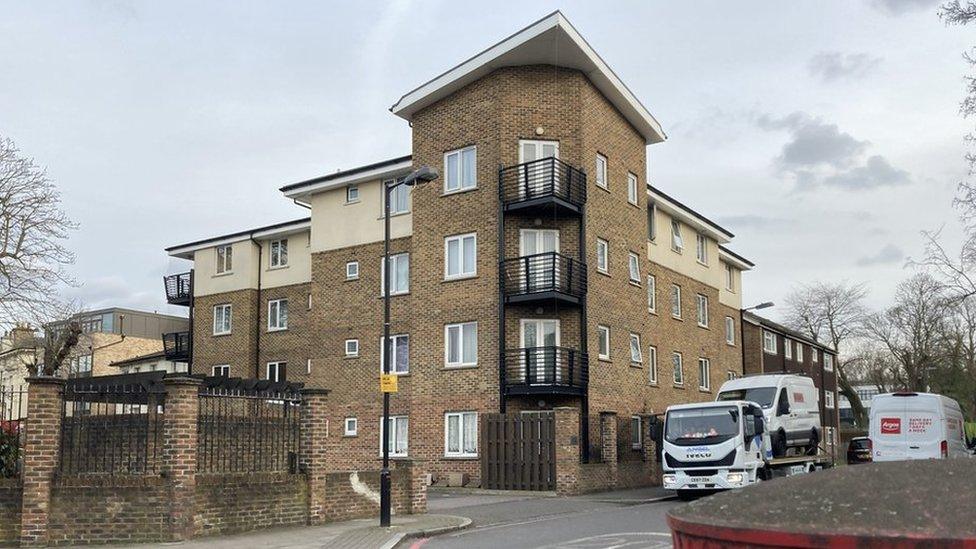Peckham flat death: Peabody sorry for not spotting dead woman
- Published
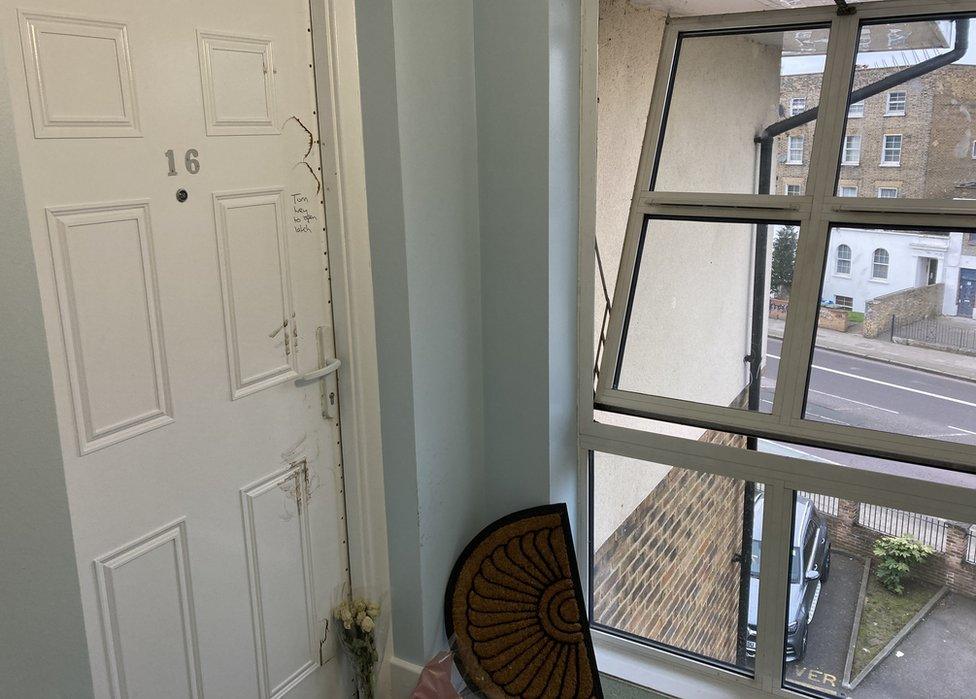
Nobody entered Sheila Seleoane's flat for years
A housing group that did not realise one of its residents had been dead for two and a half years has apologised.
Sheila Seleoane, 58, was found in her Peckham flat in February and had to be identified by dental records.
Residents repeatedly told Peabody of a foul stench and maggots in summer 2019. It only made one "proactive attempt" to contact the tenant and cut off her gas.
"We weren't asking the fundamental question: is Sheila OK?" Peabody's chief executive Ian McDermott admitted.
He said: "We've apologised to the family. We're deeply sorry for what happened.
"The biggest apology though I think does go to the residents of Lord's Court. They did tell us that something was wrong."
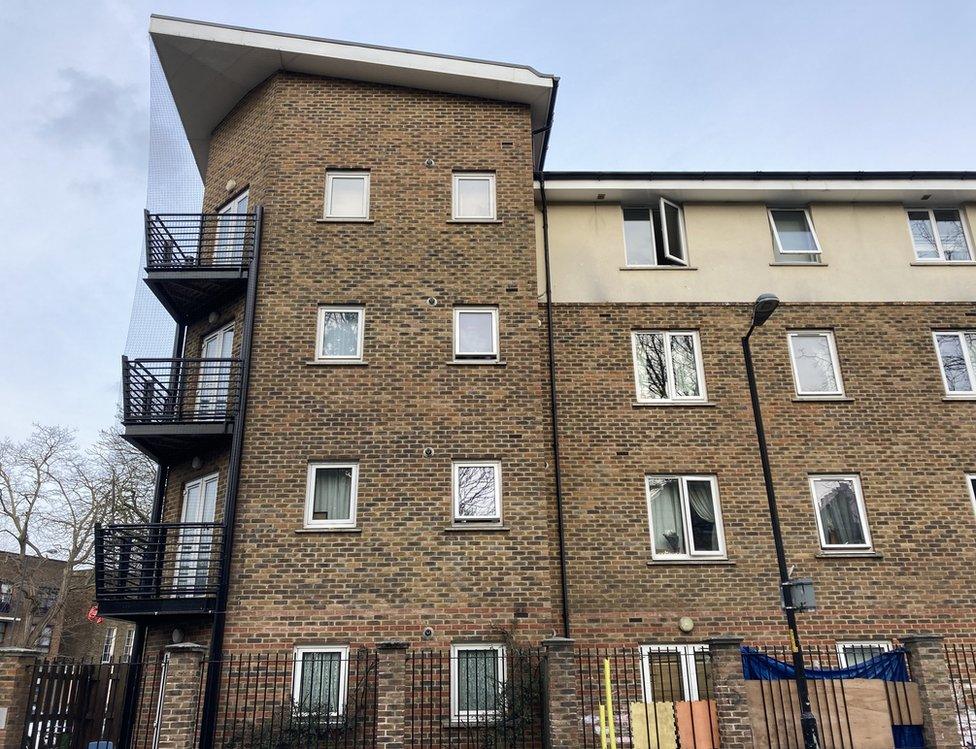
Miss Seleoane lived on the top floor
Miss Seleoane's last known contact was with her GP in August 2019, the same month she stopped paying rent at her south-east London flat.
Landlord Peabody cut off her gas supply in June 2020, three months after applying for Universal Credit to cover her rent when the first lockdown started.
Peabody has not yet paid this money back but says it will.
A post-mortem examination found the cause of her death was unascertained due to the advanced state of decomposition of Ms Seleoane's body.
However, she had Crohn's disease and bowel inflammation.
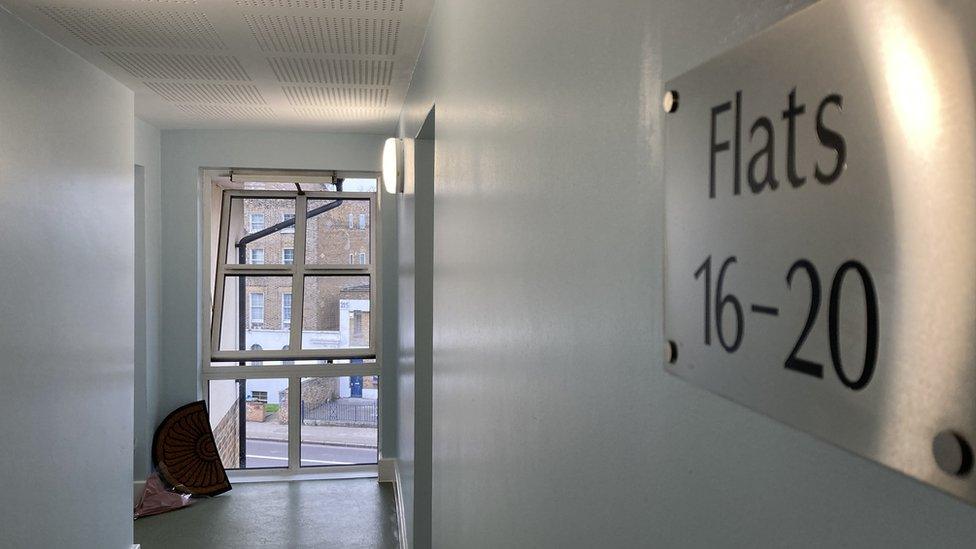
Neighbours told Peabody of their concerns
An inquest on Thursday found there had been numerous missed opportunities by both Peabody and the police.
Delivering an open verdict, coroner Dr Julian Morris said: "Any death is sad. To lie undetected for in all likelihood over two years is difficult to fathom in 2022."
There were two police visits to Lord's Court within a week in October 2020, one at the request of residents and another at the request of Peabody.
Officers were unable to make contact with Miss Seleoane.
However, a miscommunication by a Met Police controller led to the mistaken conclusion that Ms Seleoane had been seen alive and well and this was the information that was passed on to Peabody.
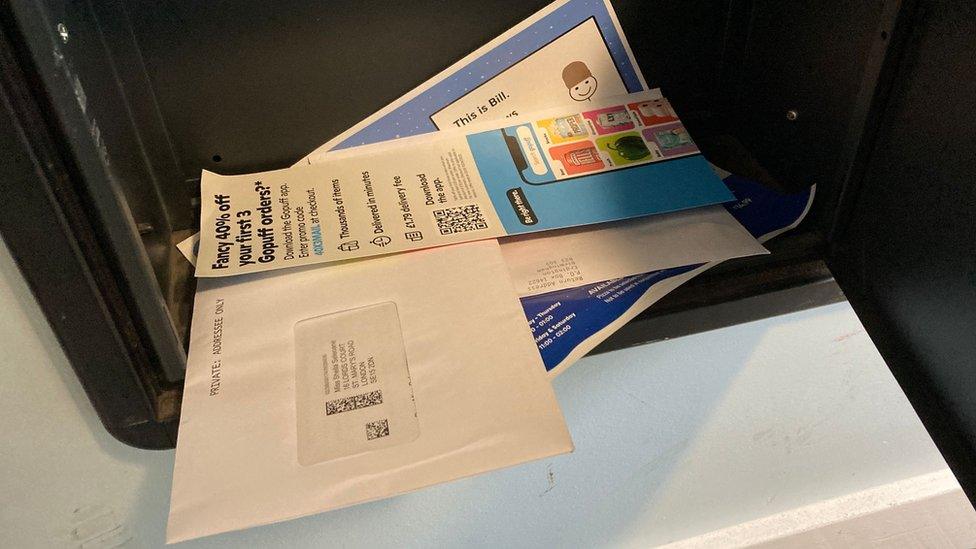
Unopened post was found in a mailbox on the ground floor of the building
Mr McDermott said: "We asked the police to get involved, they called in and and reassured us that Sheila was alive.
"Clearly that wasn't the case. We should have spotted those signs earlier."
In response, the Met Police said in October 2020 a Peabody representative contacted the force to ask if Ms Seleoane was safe and well and the Met said it "mistakenly informed" the housing body she was.
A spokeswoman added: "This response was based on information held on MPS (Metropolitan Police Service) systems as to the outcome of officer attendance that day.
"The staff member who documented that incorrect information no longer works for the MPS, but had they still been employed they would have been referred to Professional Standards for unsatisfactory performance.
"We sincerely apologise for the error and for any distress that it caused to the family of Ms Seleoane."
'So many unanswered questions'
Ms Seleoane's body was found in February by police officers who forced entry after residents heard her balcony door swinging open following Storm Eunice.
Her skeletal remains were discovered lying in the recovery position. She had been wearing blue pyjamas and a white top, while there was "a brown substance around her body which must be a product of decomposition", police said.
Residents have told the BBC their concerns were not taken seriously and they have "so many unanswered questions".
One neighbour said: "How embarrassing - 89 attempts yet they closed the case based on the police saying they spoke to her but somehow they couldn't.
"My thoughts are the same as the residents, really. It's all words until we see the action and they have yet to demonstrate how 'sorry' they are.
"The main thing is we don't want anyone to have to go through what Sheila and us as residents went through. No human being deserves to be treated like that."

Follow BBC London on Facebook, external, Twitter , externaland Instagram, external. Send your story ideas to hellobbclondon@bbc.co.uk, external
- Published21 July 2022
